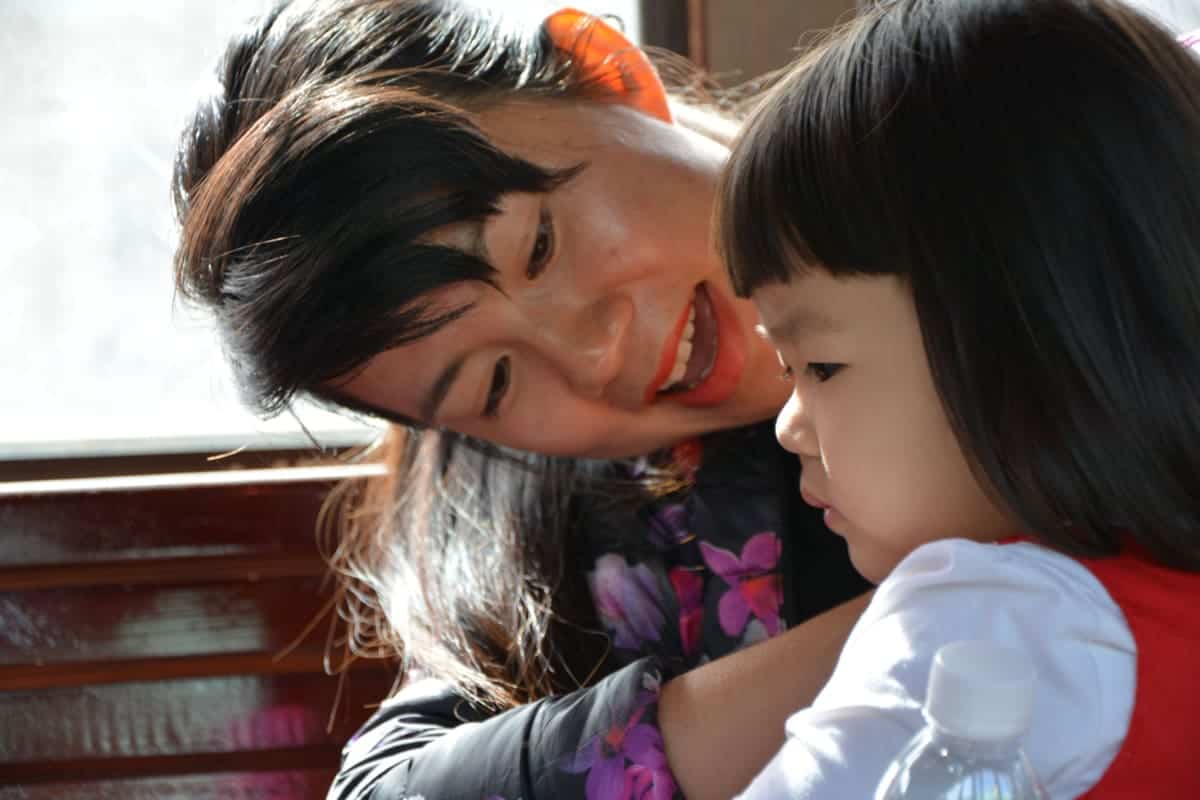Divorce is difficult no matter who you are. It has a way of infiltrating and rearranging so many things in our lives. The emotional and psychological effects can be dramatic, and they can last for a long time. This is especially true for children.
Often the overlooked victims of divorce, children don’t have the same knowledge or ability to navigate the immense confusion, conflict, pain, and work that dealing with and healing from parental separation requires. They need our help, our love, our listening ear, and our open mind. They sometimes need a good counselor or two, a wide network of supportive friends, family, and mentors. Unfortunately, they sometimes get very few of these.
Even with mutually respectful, level-headed separations, children are likely to be devastated by the change. It throws their entire world out of balance, changes everything they thought they knew or could count on in the world. Doing everything you can to help them cope with, adjust to, and ultimately move though this painful season, should be a top priority for you and your spouse.
It’s not easy knowing what to say to your kids when it comes to divorce. After all, this is a new experience for you as well. What you don’t want to do is to underestimate the emotional and psychological impact it will have on them.
There are steps you can take to communicate the news with honesty and affirmation in mind. You have the ability to prioritize your child’s well-being and to make choices that bring them the understanding, perspective, and peace of mind they need to begin their healing journey.
Our post today is not some kind of script you can follow that works for every child. Especially since every child is unique. It is a helpful guide with key points to remember when approaching your child about divorce, and a handful of suggestions for things you and your spouse can do to ease their pain, provide them with stability and confidence, and help them move forward.

What Does My Child Want or Need from Me and My Spouse During Divorce?
Part of talking with your children about divorce is first understanding what they really need from us during this time. It’s important to stay present with them and respond to their needs with affirming, honest choices, and a lot of quality time. Here are a few things most children need from us in this season.
I Need to Know You Love Me
It seems obvious to us, but we all need reassurance, not only during times of difficulty, but in normal seasons as well. Your separation, no matter how cordial it may be, can be traumatic for your child.
Divorced parents have a lot on their minds. They are caught up in this difficult time, awash in very consequential adult decisions, contemplating a new living arrangement, reworking daily routines, discussing custody arrangements and school activities, juggling a changing social life and a plethora of difficult conversations, fielding questions from extended family, and trying to cope with their own negative feelings. Though we love our children desperately, we may forget to let them know, or to provide them with the strength, attention, and assurance they need.
It’s easy to see our divorce as our own problem and merely a secondary issue for our kids. When this happens, they suffer and lose their feeling of stability and their sense of trust and identity. Let them know each day that you love them. Remind them that this will never change, no matter what happens between you and your spouse, and that they will always be special to you both.
Please Don’t Fight so Much and Not in Front of Me
When you and your spouse fight often and do so within earshot of your child, their world crumbles even more. Even worse, if you’re fighting about issues related to your kid, they will internalize this as being their fault. This deep sense of guilt and unease is not easily mended.
Do your best to discuss problems calmly, and work out conflicts through mature conversation. If you must fight, do so only when your son or daughter is nowhere near. Life may not be normal during divorce, but you can avoid shaking their sense of normalcy even more by leaving conflict between you and your spouse to opportunities when the two of you are completely alone.
Don’t Speak Harshly about My Other Parent
Kids want to continue to love and respect each parent without feeling compelled to pass judgment on one of them or be made to feel like they need to take sides. No matter how uncomfortable things are between you and your spouse, don’t speak ill of them with your child. Don’t mock, disrespect, or spread negative stories about your spouse with your kids.
You don’t want your spouse doing the same thing when they’re with your child. Plus, it just makes you look immature, mean-spirited, and out of control. Maintain your composure. If you need to vent, do so with a friend, or wait until you talk face to face with your spouse. Always speak well of your spouse or ex with your children, and encourage your kids in their relationship with both parents.
Don’t Use Me as a Messenger
This is a big one. Your kids are not message carriers for you and your spouse. Don’t ask or force them to deliver difficult or detailed information. It’s not their responsibility, and it pits them against each of you at different times. Communicate honestly and directly with your spouse without involving your children.
How to Discuss Your Impending Divorce with Your Children
Your decision to divorce is going to land hard no matter how old your kids are. Their reactions will vary depending on their particular season in life, but their sense of security, their need to understand your divorce, their fears over losing the love of their parents, of being forced to change their normal routines and daily life, and their desire for plenty of reassurance and an ongoing conversation, is relevant across the board.
It is a difficult task to have these conversations. You probably won’t feel comfortable sharing at first. But you need to open this dialogue between you and your children early on. Some communication tips to keep in mind include:
Be Direct – Don’t be Evasive
Kids don’t need every detail, (a full adult understanding), especially when they are younger. However, they do need you to be honest and direct. Don’t try to paint a false picture for them. If things are really rough between you and your spouse, it’s okay to communicate that.
If they ask you direct questions, give them direct answers, yet be wise about the details you share. Children and adolescents don’t need to hear all the details of betrayals or indiscretions, or every financial error committed by you or your spouse. Just treat your children with respect and dignity by not avoiding communication and difficult questions.
Be Honest
This is closely tied to the last tip, but slightly different. Honesty is about telling the truth and owning up to the consequences of your decisions. Be accountable for your choices and be proactive in your communication with your kids.
Don’t lie about the condition of your marriage, or create false narratives simply to avoid difficult conversations. Use common sense and what you know about your child’s level of development, cognitive abilities, and emotional intelligence to decide what information to reveal and what should wait until they are older.
You want to ease tensions and make future situations and family dynamics easier and more fruitful when they arise. You only make things harder on yourself and your family when you avoid honesty.

Get on the Same Page with Your Spouse
Too many divorcing couples tell different stories to their kids about their separation and about what they can expect in the future. Work with your spouse to create a plan to discuss your divorce with the kids.
Work out what details you’ll be sharing, how you’re going to field questions, and how to discuss things like living situations, custody, regular routines, school, and your plans together to make sure they continue to feel loved and supported.
When Sharing, Understand Age and Context
Toddlers and young children don’t understand grown-up problems, adult conflict, complex events, and other nuances of adult life. Use simple language. Be direct and avoid metaphors, unclear words, or prevarication.
Let them know that the two of you will be separating and getting something called a divorce, that you have decided to just be friends, that you’ll each have your own house, that Daddy will always be their Daddy and Mommy, always their Mommy, and that each of you will continue to take care of and love them no matter what.
With older kids, you can be more specific. They will usually have more questions than younger children. Answer them directly and take their concerns to heart. Use discernment with the exact details you share. They probably don’t need to have the details of infidelity or other mistakes.
Teenagers will usually have the most questions, the most pointed inquiries, and often a desire to be a part of the process. They want respect from you. They want clarity and to not be shut out from everything going on in their family life. They want to be able to have a say in some of what happens to them.
Teens have strong emotions and will sometimes act upon them in larger, louder, and more destructive ways. They carry a more adult understanding of the world while still remaining naïve about so much of it. This contrast and inner conflict can lead to bouts of anger, rage, depression, reclusiveness, trouble at school, mental health struggles, substance or alcohol abuse, conflict with friends, loss of interest in their hobbies or activities, and additional signs of distress.
Help them feel understood and valued by remaining open and honest with them. Answer their questions. Let them vent or express emotions in healthy ways. And partner with therapists and other health professionals to help your teens and kids work through deep emotional pain, and develop the tools they need to move ahead in life.
Discuss Changes Early On
Some parents try to downplay the fact that their divorce will result in many changes in their child’s life. Instead, talk about these things early on in the process. Of course, you will never be able to predict every possible change your child may experience. Still, you can work with your spouse to talk with your kids about the things you are clear about, like split homes, schedules, weekly time with each of you, how communication should work, possible school changes, and anything else you can identify at this point in the journey.
Help Them Find Their Words
Encourage them to express themselves and be gentle but direct in giving them the confidence they need to say what needs to be said and to discuss their deepest thoughts and feelings. Do your best to make them feel comfortable sharing their concerns. When they come to you for a talk, don’t push them away, ignore them, or downplay their struggles. Take them seriously. Your family counselor can help you with additional ways to encourage your child’s communication.
Be Physically Present and Affectionate
Make sure to lavish them with hugs, kisses, snuggles, and affirmation (age appropriate, of course). Also, just being there with them in close proximity is reassuring. You can play games together, cook a meal, take a walk, go for a drive, watch a movie, get creative, or do something else the two of you enjoy.
Reassurance isn’t always about conversation. It also happens unconsciously for kids simply by having their parents nearby, fully present, and interested in spending time with them.
Don’t Make Your Kids Pick a Side
You and your spouse should continually work together to encourage your kids to remain dedicated to both parents. Don’t model behavior that pushes them to choose sides. It’s a horrible thing to do and incredibly unhealthy for your young ones.
Parent-child relationships are never going to be perfect. And it’s possible they may side slightly more with one parent or the other on their own. But you and your spouse can address this directly with them, encouraging them to talk about it and talk about why equal love and respect for both parents is important.
Provide Stability
This period in their life is a massive upheaval of their world. Do your best to keep as many things the same as you can – school, extra-curricular activities, friends, meal times, outings, lessons, trips. Of course, there will be some changes to your schedules, but with enough communication, planning, and teamwork, you and your spouse should be able to provide a relatively stable environment for your kids.
Be consistent with your time with them. Try not to change pickup times or days and nights with them. Children count on these regularly scheduled times with you. It helps them relax and find peace, knowing you’ll be with them on the same days and times each week.

In Closing
There are certainly more tips to consider. But this list will give you the perfect framework you need to begin not only the more difficult conversations with your kids, but help you organize your life and your interactions with your spouse in ways that encourage and strengthen your children during this difficult time.
Remember to always seek the assistance of a child therapist to help your children deal with change, confusing emotions, and the divorce process, and provide you and your family with additional resources as needed.
Be ready to offer constant reassurance to your kids. Work hard to maintain a strong relationship. Get to know their teachers and school counselors so you can work together to help your child find the support they need from the wider community. It’s also good for you to work with experts on your own healing, your difficult emotions, dramatic adjustments in life, and on developing positive parenting solutions.
You and your kids are worth it. Choose, up-front, to be partners with your ex in the mission of good and loving parenting, to ensure that your children find healthy ways to express themselves, heal from their pain, and continue moving forward in both their life and family.
Torrone Law helps families find resolution and peace of mind, with attentive, caring, professional legal support through the process of divorce, adoption, or custody. Connect with us today to learn how much better life can be with Torrone working to protect your family’s future.
To learn more about talking to your kids about divorce, check out our frequently asked questions below.
FAQ
Should we talk to our kids early on or wait until right before one of us moves out?
It’s better to begin your talks earlier on, especially with older kids and teens. They need time to make sense of everything, to adjust to the idea, ample opportunity for questions and conversation, and the greater stability that comes with being able to emotionally prepare for such a change.
What are some common areas where divorce impacts a child?
It can affect just about every area of their life. Common struggles include anxiety and depression, mood swings, changes in eating and sleeping patterns, difficulty focusing, problems with schoolwork and extra-curricular activities, conflict with friends, frequent fights with siblings, and more.
Where should I turn when I need help talking with my kids about divorce?
Turn first to a trusted family or child counselor. They’ll be able to guide you toward healthy communication patterns, ways to encourage and affirm your child, suggestions for working more effectively with your spouse or ex for the benefit of the kids, and how to help each member of your family move through the stages of loss, grief, and healing, each in their own time.
Next, turn to mature, trusted friends, mentors, and family members for support, especially those who have gone through something similar.







